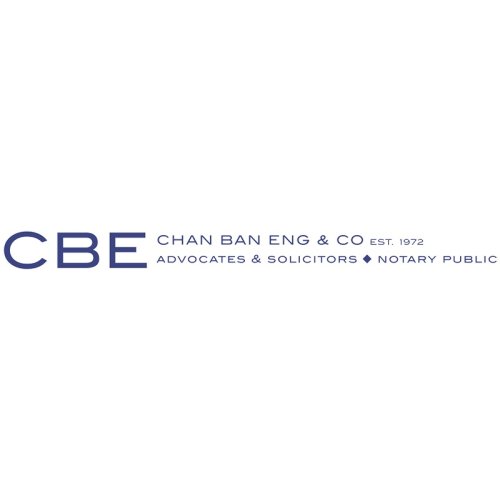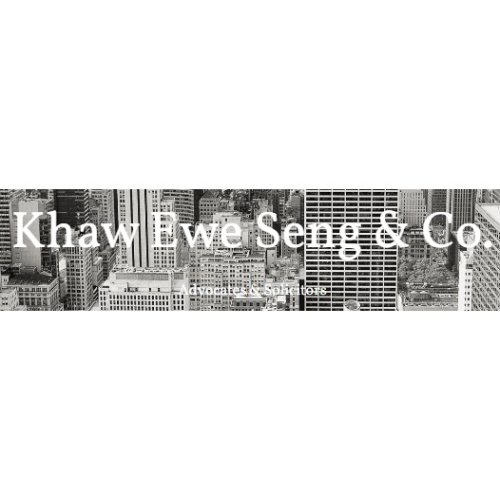Best International Trade Law Lawyers in George Town
Share your needs with us, get contacted by law firms.
Free. Takes 2 min.
List of the best lawyers in George Town, Malaysia
About International Trade Law in George Town, Malaysia
International Trade Law in George Town, Malaysia, encompasses the legal frameworks governing trade between Malaysia and other countries. As a central hub of commerce in Southeast Asia, George Town plays a vital role in Malaysia's international trade activities. The law covers various aspects including trade agreements, tariffs, import and export regulations, and dispute resolution mechanisms. In Malaysia, the legal framework is influenced by both domestic laws and international agreements, such as World Trade Organization (WTO) regulations and bilateral or regional trade agreements.
Why You May Need a Lawyer
Engaging a lawyer specializing in International Trade Law can be crucial in several situations. If you are a business looking to expand your market by importing or exporting goods, understanding compliance with tariffs and trade regulations is essential. Companies involved in international transactions may need help drafting contracts or resolving disputes. Additionally, if your business faces sanctions or embargoes, a lawyer can offer guidance on legal remedies and negotiation strategies. Legal expertise is also beneficial in navigating complex areas such as intellectual property rights in cross-border trade.
Local Laws Overview
International Trade Law in George Town, Malaysia, is governed by a mix of local laws and international commitments. The Customs Act 1967 is integral, setting the procedures for handling customs duties, import/export regulations, and prohibitions on certain goods. The Free Zones Act 1990 allows for the establishment of free trade zones in George Town to promote trade by offering duty exemptions. Additionally, Malaysia is part of several international trade agreements such as ASEAN Free Trade Area (AFTA) and Comprehensive and Progressive Agreement for Trans-Pacific Partnership (CPTPP), which influence local legal practices.
Frequently Asked Questions
What are the primary laws regulating international trade in Malaysia?
The primary laws include the Customs Act 1967, the Free Zones Act 1990, as well as numerous other regulations issued by government entities such as the Ministry of International Trade and Industry (MITI).
Do I need a license to import goods into George Town?
Yes, depending on the type of goods, you may need an import license. It's crucial to consult with MITI and adhere to the local regulations specific to those goods.
How do trade agreements affect my business?
Trade agreements can provide opportunities such as reduced tariffs, established market access, and standardized regulations, which can help streamline your international trade operations.
What is a Free Trade Zone?
A Free Trade Zone is an area where goods can be imported, manufactured, or re-exported without the burden of customs duties. George Town has such zones to facilitate international trade.
How can I resolve a trade dispute?
Trade disputes can often be complex. Resolution may involve legal negotiation, arbitration, or litigation in accordance with local laws or international trade agreements.
Are there any restrictions on exporting certain goods?
Yes, certain goods may be restricted or require special permits, particularly those considered sensitive for economic, safety, or environmental reasons.
What role does MITI play in international trade?
MITI regulates international trade policy, implements trade agreements, provides trade licenses, and supports Malaysian traders in expanding their global presence.
Can tariffs be reduced or waived?
In some cases, tariffs can be reduced or waived through trade agreements or special government-issued incentives, typically requiring compliance with specific criteria.
How do I protect my intellectual property in international trade?
You should register your intellectual property both domestically and in the countries you’re exporting to. A lawyer can assist with navigating international IP treaties and local regulations.
What should I consider in an international trade contract?
Key considerations include payment terms, risk of loss, dispute resolution mechanisms, applicable law, and customs duties responsibilities. Expert legal advice is recommended.
Additional Resources
Several resources can support individuals and businesses seeking assistance in International Trade Law:
- Ministry of International Trade and Industry (MITI): Offers guidelines, licenses, and supportive information for traders.
- Malaysia External Trade Development Corporation (MATRADE): Assists Malaysian companies in establishing their presence globally.
- World Trade Organization (WTO): Provides comprehensive resources on international trade agreements affecting Malaysia.
- Local Chambers of Commerce: Offer advocacy, networking opportunities, and regulatory guidance for businesses.
- Legal Firms Specialized in Trade Law: Numerous law firms in George Town can provide specific and nuanced legal advice.
Next Steps
If you are seeking legal assistance in International Trade Law, consider the following steps:
- Assess your specific legal needs, considering aspects such as import/export licenses, trade agreements, and potential disputes.
- Research and contact specialized law firms in George Town with expertise in international trade.
- Prepare relevant documents, details of transactions, or contracts to facilitate an effective legal consultation.
- Consider reaching out to local trade bodies for initial support and to understand the basic regulatory framework.
- Ensure ongoing compliance with local and international regulations to avoid penalties and enhance your international business operations.
Lawzana helps you find the best lawyers and law firms in George Town through a curated and pre-screened list of qualified legal professionals. Our platform offers rankings and detailed profiles of attorneys and law firms, allowing you to compare based on practice areas, including International Trade Law, experience, and client feedback.
Each profile includes a description of the firm's areas of practice, client reviews, team members and partners, year of establishment, spoken languages, office locations, contact information, social media presence, and any published articles or resources. Most firms on our platform speak English and are experienced in both local and international legal matters.
Get a quote from top-rated law firms in George Town, Malaysia — quickly, securely, and without unnecessary hassle.
Disclaimer:
The information provided on this page is for general informational purposes only and does not constitute legal advice. While we strive to ensure the accuracy and relevance of the content, legal information may change over time, and interpretations of the law can vary. You should always consult with a qualified legal professional for advice specific to your situation.
We disclaim all liability for actions taken or not taken based on the content of this page. If you believe any information is incorrect or outdated, please contact us, and we will review and update it where appropriate.
















